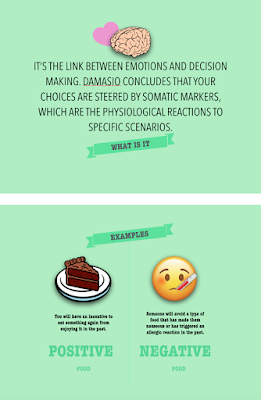A New Way to look at emotions
Lisa Feldman Barret's theory of how we perceive emotion comes through as highly-thought provoking, and to an extent, is implying a potential paradigm shift in how we understand what emotions are in their very essence. One of the first points presented is the idea that physiological stimuli can be used interchangeably to tell our body different emotions. However, the way those same stimuli are used to distinguish emotions rely on the context itself. What this puts into question is the true reliability of our emotions. If it comes to a point where the body is trying to express a feeling but the context does not lend itself to the interpretation what the body wants to achieve, this can lead to flawed decision-making. This puts into perspective how it is crucial to comprehend the possible unreliability of emotions– if the wrong context happens to coincide with the wrong physiological stimuli, the decision-making that is born from that union can have dangerous ramifications. This exa...

